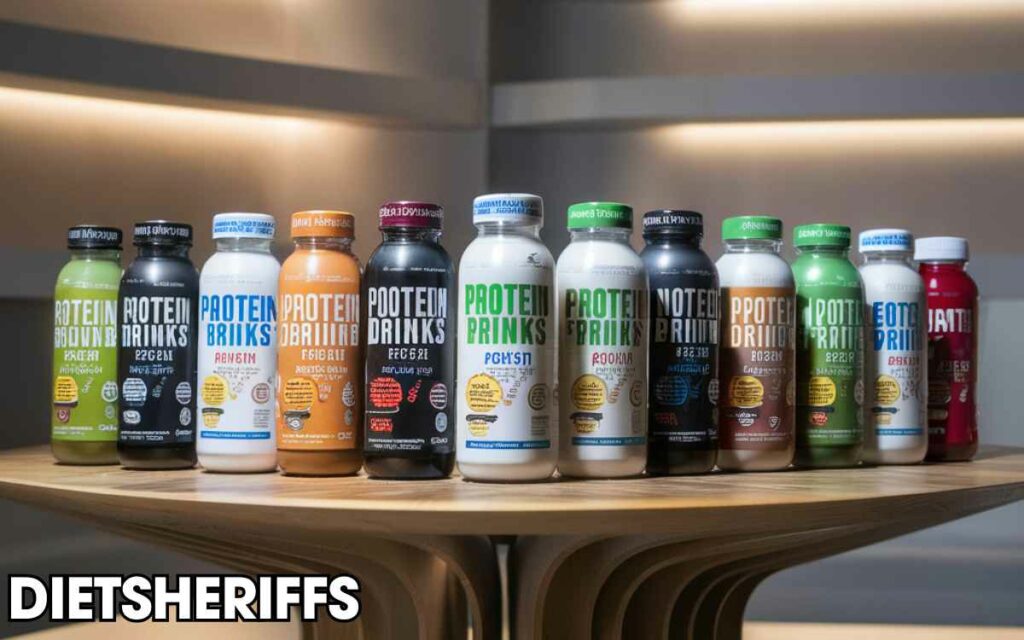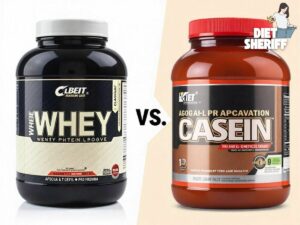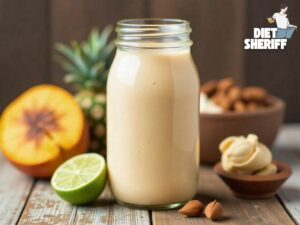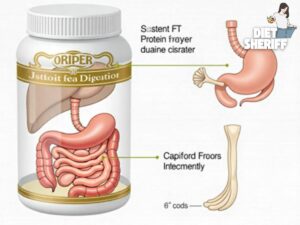Protein shakes are becoming more and more well-liked as practical and adaptable ways to increase protein consumption. This satisfies dietary requirements and aids in muscle rehabilitation.
The protein drinks are an effective way of augmenting your regular protein intake. But, you might wonder, “can I drink protein drinks everyday?”
It’s important to understand everything there is to know about protein drinks, including how to select the best one for your goals and any possible negative effects.
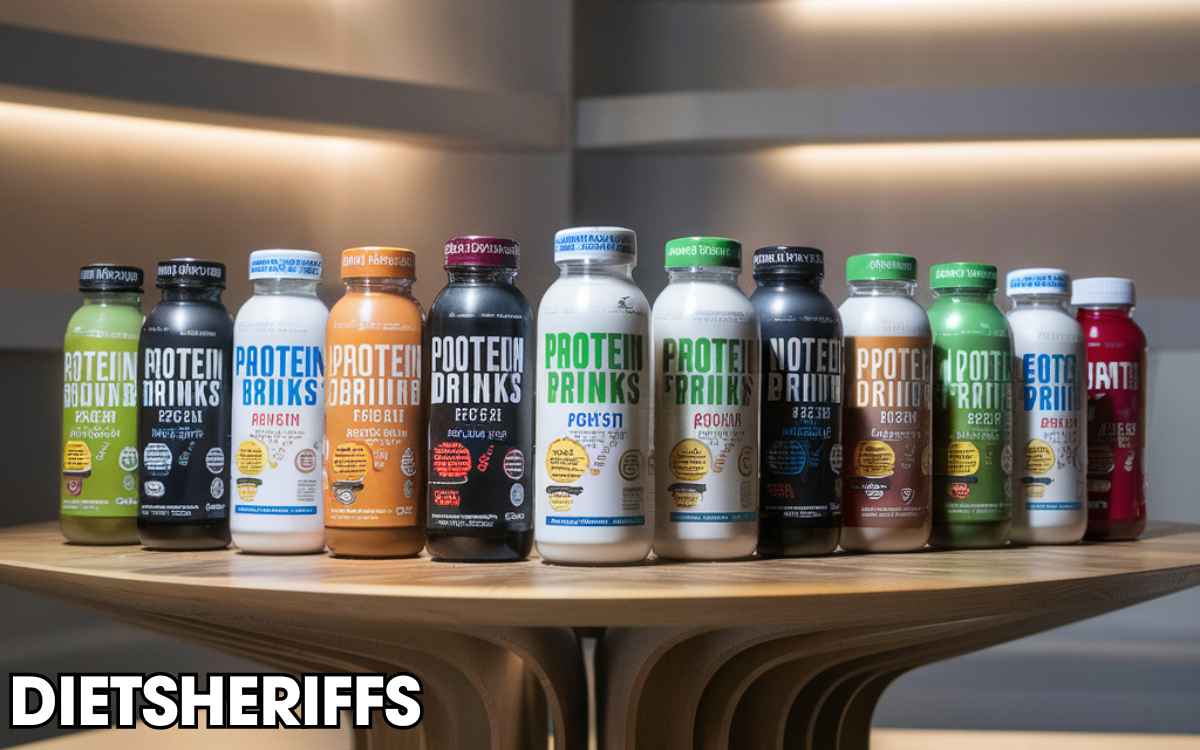
Why Might Someone Consider Incorporating Protein Drinks Into Their Daily Routine?
Drinking protein shakes has a number of advantages. For example:
Muscle Repair and Growth: Building and rebuilding muscle tissue require protein. After an exercise, consuming protein beverages can encourage muscle development.
Convenience: Protein shakes are portable and easy to use. It provides a quick and simple means of increasing protein consumption.
Weight Management: Protein may make you feel full for longer intervals of time, which may lead to a decrease in total caloric consumption.
Muscle Preservation: Adequate protein consumption can help in the preservation of lean muscle mass during times of calorie restriction and weight reduction.
Improved Athletic Performance: A sufficient protein intake is essential for maintaining performance in athletes and regular exercisers.
Nutrient Timing: Protein shakes can be consumed either before or after exercise to assist maximizes nutritional timing.
Related Articles: What to Do with Expired Protein Powder? The Ultimate Guide
What are the Consequences of Drinking Protein Shakes Every Day?
Daily intake of protein shakes might have both advantages and disadvantages. Here are a few possible results:
Positive Effects
Building and Repairing Muscle
- Protein shakes are a great source of amino acids, which are the building blocks of muscle.
- Regularly consuming protein shakes gives the body the nourishment it needs to heal, particularly after exercise.
- Additionally, this rebuilds muscles, resulting in an increase in strength and muscular mass.
Convenience
- Increasing protein consumption is easy and quick with protein shakes.
- This is beneficial for people who find it difficult to cook meals high in protein.
- They offer a handy source of nutrients on-the-go and may be used as a snack and meal replacement diet sheriff.
Weight Management
- Since protein shakes are high in protein, they can help with feelings of fullness and satisfaction.
- Shakes high in protein could aid in calorie restriction overall, which would aid in weight reduction.
Related Articles: Does Protein Powder Have Calories?
Nutrient Density
- Protein shakes may be enhanced with important vitamins, minerals, and other nutrients based on the components utilized.
- Certain protein powders include extra minerals and vitamins in them.
- This is an easy approach to improve your consumption of nutrients in addition to protein.
Athletic Performance
- Protein shakes can help athletes perform better because they provide the amino acids needed for muscular growth and recuperation.
- Shakes high in protein can be consumed either before or after exercise to maximize the synthesis of muscle protein.
Dietary Flexibility
- Whey protein, casein protein and plant-based protein are just a few of the tastes and combinations available in protein shakes.
- People may select protein shakes from this assortment that fit their nutritional requirements and tastes.
Negative Effects
Potential for Weight Gain
- Gaining weight might result from consuming too many protein drinks without taking total caloric intake into account.
- You should consider the calories in protein shakes in relation to your daily caloric requirements.
Nutrient Imbalance
- An unbalanced diet may arise from relying mostly on protein shakes for nourishment.
Digestive Discomfort
- Protein smoothies can cause digestive problems for certain people, particularly those who are lactose intolerant.
- These symptoms include gas, bloating and diarrhea.
Related Articles: How Long Can Protein Powder Last? The Ultimate Guide
Kidney Strain
- Overdosing on protein might possibly put strain on the kidneys over time, especially for those who already have renal disease.
- This is more likely to happen if you consume a lot of protein.
Dependency
- There’s a chance that protein shakes will start to substitute for meals too often.
- This may cause deficits in other important nutrients, which are mostly present in whole meals.
Quality of Ingredients
- There is a difference between protein shakes and those that include additional sugar.
- Make sure the protein drinks you pick have minimum chemicals and are prepared with premium components.
Related Articles: Can You Take Protein Powder Without Working Out? Expert Opinions
How Can You Pick the Best Protein Shake for Your Goals?
When choosing a protein shake, keep the following things in mind:
- Source of Protein:
- Whey Protein: Whey protein is a great option for post-workout recovery since it is readily absorbed by the body.
- Casein Protein: Over time, casein protein releases amino acids steadily and with slower absorption.
- Plant-Based Protein: Fit for lactose intolerant people and vegans.
- Blends: This provides a mix of quickly and slowly digested proteins for the best possible muscle repair and long-term energy.
- Protein Content:
Look for a protein level that corresponds to your food selections and daily protein requirements.
For muscle growth, you could choose for larger protein content per serving, depending on your goals.
- Ingredients:
Look for artificial sweeteners and superfluous fillers in the ingredient list.
Choose protein shakes that are low in sugar and have only a few components.
Seek for protein drinks produced with premium, all-natural components.
- Flavor and Taste:
To make things easier, pick a protein shake with tastes you like.
Try out a variety of tastes and brands to see which one best matches your palate.
- Allergens and Sensitive:
Make sure to closely examine the ingredient list if you have any dietary sensitivities and allergies.
If you are following a particular diet, take into consideration allergen-free choices.
- Purpose and Timing:
Establish the goal of taking the protein drink and also the best time to do so.
Select protein drinks designed to meet certain needs, such as general protein supplementation, meal replacement, pre- or post-workout.
- Brand Reputation and Quality:
Make sure the product you’re buying is trustworthy and up to par by researching the brand’s reputation and quality.
Seek certifications such as NSF Certified for Sport or Informed-Sport to confirm the purity of the ingredients and the quality of the product.
- Cost:
When selecting a protein drink, take into account the price per serving.
Examine costs for several brands and items to determine which one best suit you’re spending plan.
- Examine the feedback and suggestions:
Examine other customers’ feedback and ask fitness experts for suggestions. Their observations can direct your decision-making.
Explore Also:
Creativehouseblog
Gigasecurehome
Mycleanseplan
Can I Drink Protein Drinks Everyday? – FAQs
Is it possible to prepare protein drinks at home?
Yes.
Are protein drinks safe for women who are nursing and pregnant?
They should to speak with their physician.
If I’m intolerant to lactose, can I still consume protein shakes?
Yes, there are alternatives for lactose-free protein.
Can children consume protein shakes?
Seeking advice from a doctor or qualified nutritionist is recommended.
Do protein shakes expire?
Yes.

